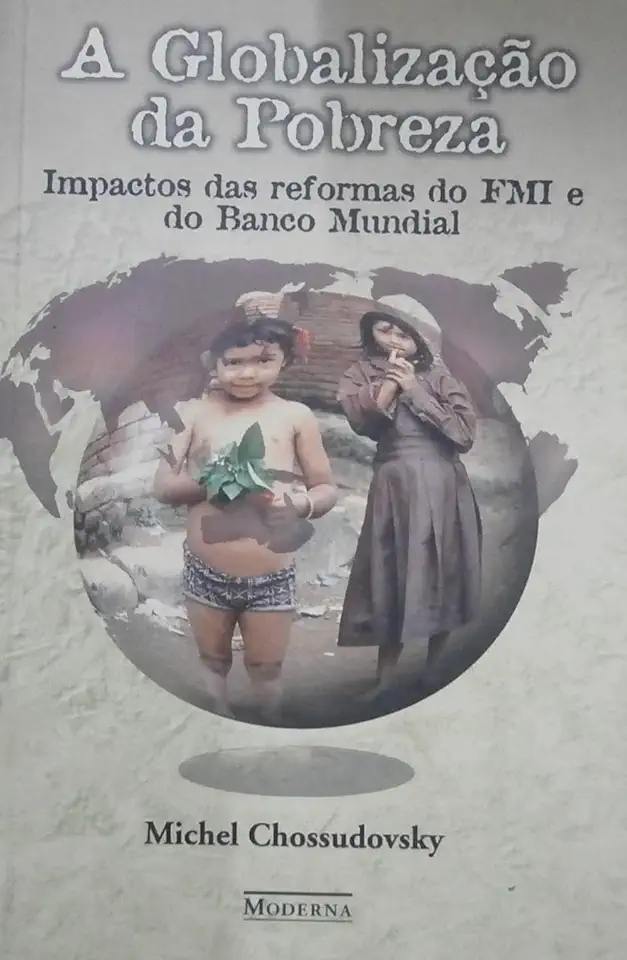
The Globalization of Poverty - Michel Chossudovsky
The Globalization of Poverty: How the International Monetary Fund and the World Bank Undermine Democracy and Development
Introduction
In his groundbreaking book, Michel Chossudovsky exposes the devastating impact of globalization on the world's poor. He argues that the policies of the International Monetary Fund (IMF) and the World Bank have exacerbated poverty and inequality, while undermining democracy and development.
The IMF and the World Bank
The IMF and the World Bank are two of the most powerful financial institutions in the world. They were created in the aftermath of World War II to help rebuild the global economy. However, in recent decades, they have increasingly come under fire for their role in promoting neoliberal policies that have led to widespread poverty and inequality.
Neoliberal Policies
Neoliberal policies are based on the belief that the free market is the best way to promote economic growth. These policies include deregulation, privatization, and cuts to social spending. They have been widely adopted by governments around the world, often at the behest of the IMF and the World Bank.
The Impact of Neoliberal Policies
Neoliberal policies have had a devastating impact on the world's poor. They have led to increased unemployment, poverty, and inequality. They have also undermined democracy and development by concentrating wealth and power in the hands of a few wealthy individuals and corporations.
The Case Studies
Chossudovsky provides a number of case studies to illustrate the impact of neoliberal policies on the world's poor. These case studies include:
- The Asian financial crisis of 1997-1998: The IMF and the World Bank imposed harsh austerity measures on countries affected by the crisis, which led to widespread poverty and social unrest.
- The debt crisis in Africa: The IMF and the World Bank have forced African countries to take on unsustainable levels of debt, which has led to poverty, corruption, and political instability.
- The war on drugs in Latin America: The IMF and the World Bank have supported the US-led war on drugs, which has led to widespread human rights abuses and the militarization of Latin American societies.
The Alternatives
Chossudovsky argues that there are alternatives to neoliberal policies that can promote economic growth and development without sacrificing social justice. These alternatives include:
- Increased government regulation of the economy: Governments need to regulate the economy to prevent the concentration of wealth and power in the hands of a few wealthy individuals and corporations.
- Increased social spending: Governments need to invest in social programs that provide essential services to the poor, such as education, healthcare, and housing.
- Debt cancellation for developing countries: The IMF and the World Bank need to cancel the debts of developing countries so that they can invest in their own development.
- A new international financial architecture: The IMF and the World Bank need to be reformed to make them more democratic and accountable to the people they serve.
Conclusion
The Globalization of Poverty is a powerful indictment of the IMF and the World Bank and their role in promoting neoliberal policies that have led to widespread poverty and inequality. Chossudovsky provides a wealth of evidence to support his arguments, and he offers a number of alternatives that can promote economic growth and development without sacrificing social justice. This book is a must-read for anyone who wants to understand the causes of poverty and inequality in the world today.
Enjoyed the summary? Discover all the details and take your reading to the next level — [click here to view the book on Amazon!]